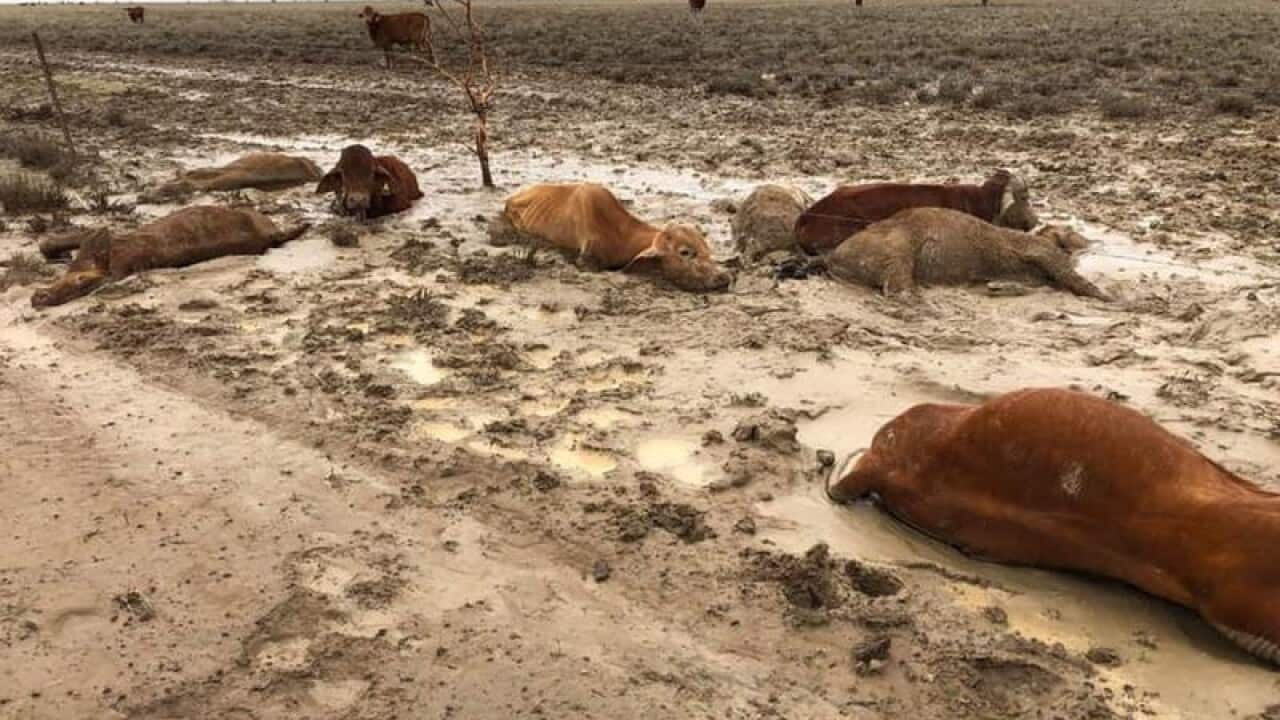One woman has died and nine people remain seriously ill after receding floodwaters following Queensland's once-in-a-century monsoonal deluge exposed people in Townsville to disease.
With the flood clean-up in full swing, authorities are expecting more people to be infected by melioidosis, a soil-borne bacteria which has been stirred up by heavily contaminated floodwaters.
Exhausted residents struggling to restart their lives after floodwaters inundated thousands of homes have also been hit with severe heatwave conditions, as temperatures climb up to 10C warmer than usual.
Townsville Hospital's Julie Mudd says seven of the sick people remain in hospital in a stable condition, two others being cared for at home.
"It's a very serious infection," Dr Mudd told reporters on Wednesday.
"(But) we're not calling it an outbreak, it is what we would consider a seasonal variation."
About one in five people who contract the infection die, however, the infection can be treated with antibiotics, Dr Mudd said.
Incubation periods last up to three weeks and the bacteria can enter the body through a cut or a person's airway.
The elderly and children are at higher risk.
"Simple things like making sure you wear gloves and boots when you're near floodwaters ... The simple measures can protect the public," she said.
The death in Townsville takes the total flood toll to three, following the deaths of two men at the peak of the floods more than a week ago.
Police are still searching for a 35-year-old man who disappeared in floodwaters at Groper Creek, south of the city, on Friday.
The health warnings come as heatwave conditions roast flood-ravaged Townsville, further complicating already stinky mopping operations.
Temperatures are expected to reach 37C on Wednesday and Thursday, the Bureau of Meteorology says.
Further inland, authorities are racing to dispose of hundreds of thousands of dead animals in the state's west to limit the spread of disease.
Cattle, sheep and wildlife perished in the unprecedented two-week rains, which left large swathes of the state under water.
Premier Annastacia Palaszczuk told parliament on Wednesday their rotting carcasses pose a high risk of botulism and Q fever to clean-up crews and to local water supplies in flooded communities.
She had urged anyone coming into contact with dead livestock to heed warnings from health officials by covering their hands and feet.
In rural communities, exhausted graziers are becoming increasingly concerned about the floods' likely financial impact, which is expected to be in the hundreds of millions of dollars.
On Tuesday, Prime Minister Scott Morrison told parliament he would ensure a recovery and restoration plan that would restore north Queensland cattle farmers to prosperity.

